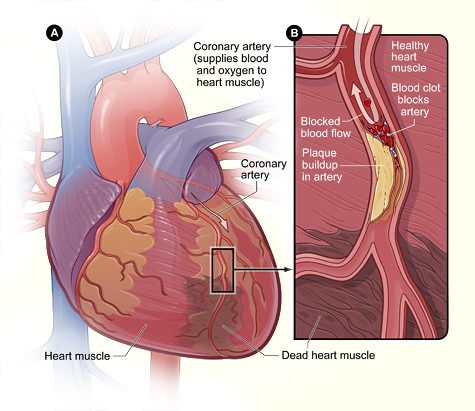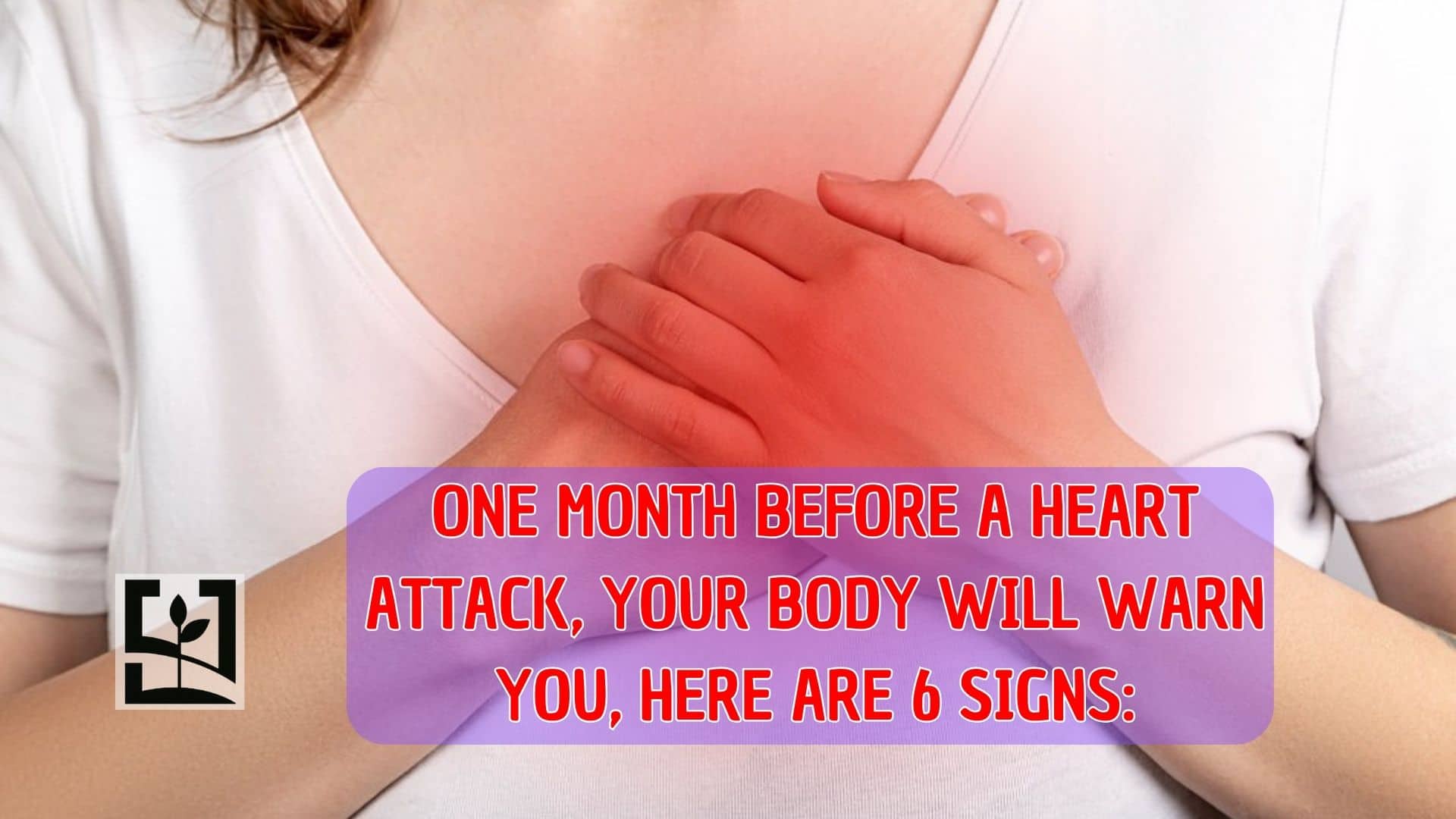
No doubt here is the modified post without the word “title”:
“A Month Before a Heart Attack: 6 Warning Signals Your Body Can Send”
Heart attack, also known as myocardial infarction, is a potentially fatal condition that requires immediate medical intervention. It is a sad fact that heart disease remains the leading cause of death worldwide. It is important to recognize the warning signals your body sends before a heart attack occurs. Surprisingly, your body can begin sending warning signals about a month before an event occurs, giving you vital time to seek medical help and make necessary lifestyle adjustments. Here are six symptoms your body may experience a month before a heart attack:
1. Unexplained Fatigue:
Extreme fatigue or tiredness is one of the first symptoms of a heart attack.
If you feel tired even after getting enough rest, this could be a warning sign.
Decreased blood flow to the heart causes fatigue, which affects its ability to pump blood efficiently.
2. Chest pain and discomfort:
Chest pain or discomfort is a common symptom before a heart attack.
It feels like tightness, pressure or squeezing in the chest.
The discomfort may be intermittent or chronic and may spread to the arms, neck, jaw, or back.
If you experience such symptoms, especially after physical activity or emotional stress, seek medical help immediately.
3. Trouble breathing:
Unexplained shortness of breath, even during daily activities, can be an early warning sign.
This may mean that your heart is struggling to provide enough oxygen-rich blood to your body.
4. Dizziness and Dizziness:
Another indicator is dizziness or lightheadedness, especially when standing up suddenly.
This sensation may be caused by a drop in blood pressure due to reduced blood flow to the heart.
5. Excessive sweating:
Heavy sweating, often accompanied by cold, clammy skin, can be a warning sign of a heart attack.
Be careful if you experience sudden sweating, especially if it is not due to physical activity or hot weather.
6. Heartbeat:
As a warning sign, irregular heartbeats or palpitations may occur.
Your heart may feel as if it is skipping, skipping, or pounding.
These symptoms may be caused by electrical abnormalities in the heart and should not be ignored.
It is important to understand that these indicators may appear individually or in combination. If you experience any of these symptoms, you should seek medical help immediately. Early detection and intervention can greatly improve the chances of preventing heart attacks and effectively treating heart-related conditions.
Leading a heart-healthy lifestyle is also important to reduce the risk of heart disease. This includes eating a balanced diet, getting regular exercise, managing stress, quitting smoking and excessive alcohol consumption. Regular checkups with your healthcare provider can also help monitor your heart health and identify potential problems before they become urgent. Please remember that this content is for awareness and educational purposes only. If you or someone you know is experiencing any of these symptoms, seek emergency medical help and consult a medical professional for proper diagnosis and treatment. Your health should always come first.

